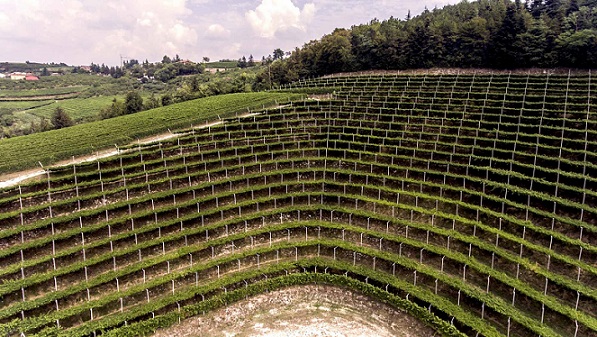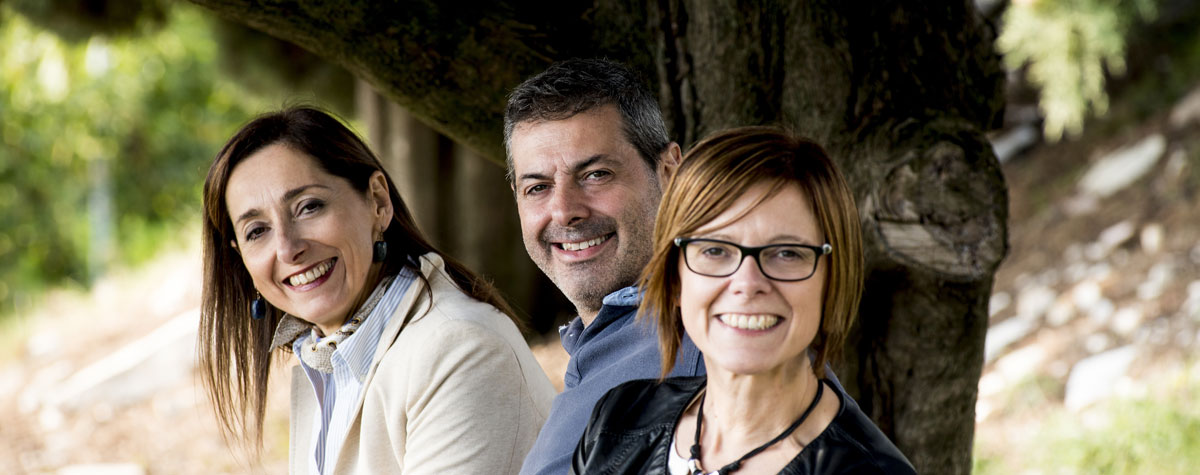These include auxin treatments to delay ripening, double pruning and creating ‘windows’ in the canopy.
The family wine business, which has been cultivating grapes in Valpolicella since 1630, has seen temperatures rising and weather events becoming increasingly more intense in the hills northwest of Verona.
“When climate change sounds the alarm, it becomes even more urgent for us to protect the territory and our heritage,” explains Riccardo Tedeschi, who runs the business with his sisters Antonietta and Sabrina. They are the fifth generation in charge.
'Changes in the climate have become obvious'“Changes in the climate have become obvious,” Riccardo continues. “Today, we cannot avoid facing the challenges that come with extreme heat and weather conditions that are intensifying and for this reason have become worrisome.
“We have started to notice some critical issues: the relative early ripening of grapes that leads to an increase in alcohol content of the wine due to an excessive accumulation of sugars, and the mismatch between the technological maturity of the grape and phenolic and aromatic ripening.”
For the three main grape varieties grown in Valpolicella – Corvina, Corvinone and Rondinella – this ‘mismatch’ can be one or two weeks and “even more in extreme years”, according to Riccardo.

So, to mitigate the impact of global warming, the winery is trialling new cultivation techniques in selected six-row plots within adjacent vineyards growing the three main varieties. These rows were treated with the objective of delaying the ripening of the grapes until the end of September and the beginning of October, while the rows around them were treated with standard techniques.
'The plan is to scale-up the trial'Riccardo explains: “Ripening with cooler temperatures has several advantages – greater complexity and aromatic intensity of the grapes as well as better colour of the wine beyond just the characterisation and differentiation from which the grape comes, namely the cru.”
The oenologist/winemaker adds: “The scale of the experiment is still small – less than 1ha – but this year the plan is to scale-up the trial on a much wider area.”
The experiments in the vineyards, conducted in association with Prof Giovanni Battista Tornielli of the University of Verona, include:
- Reducing the leaf system by pinching back and defoliation in the median apical portion of the foliage – above the fruit-bearing zone – in order to delay ripening as much as possible. This creates a transient photosynthetic stress that delays the sugar supply from leaves to the berries. Of course, defoliation is not applied to the leaves surrounding the clusters because this would result in an increased exposure of clusters to sunlight and warmer conditions. Instead, a “window” of about 50cm was created in the vertical canopy, two or three nodes above the cluster zone.
- Delayed pruning, leading to a delay in the start of growing.
- A second pruning after the formation of the sixth leaf. But Tedeschi admits this experiment was disappointing as it greatly reduced the yield.
- Spraying a synthetic plant growth regulator such as auxin (NAA) pre-veraison to delay berry ripening and increase the synchronicity of sugar accumulation between berries. Tedeschi told Canopy this spray “induced a significant delay to the onset of ripening”.
The Tedeschi family, which manages about 74ha of vineyard, 29 of them Tedeschi owned, has always maintained that investing resources in research and studies is not only fundamental to guarantee quality production but is also a moral obligation. “Supporting research in the area of winegrowing has become not only a duty for those who appreciate our wine, but it also translates into a benefit for the territory,” Riccardo concludes.











.png)









